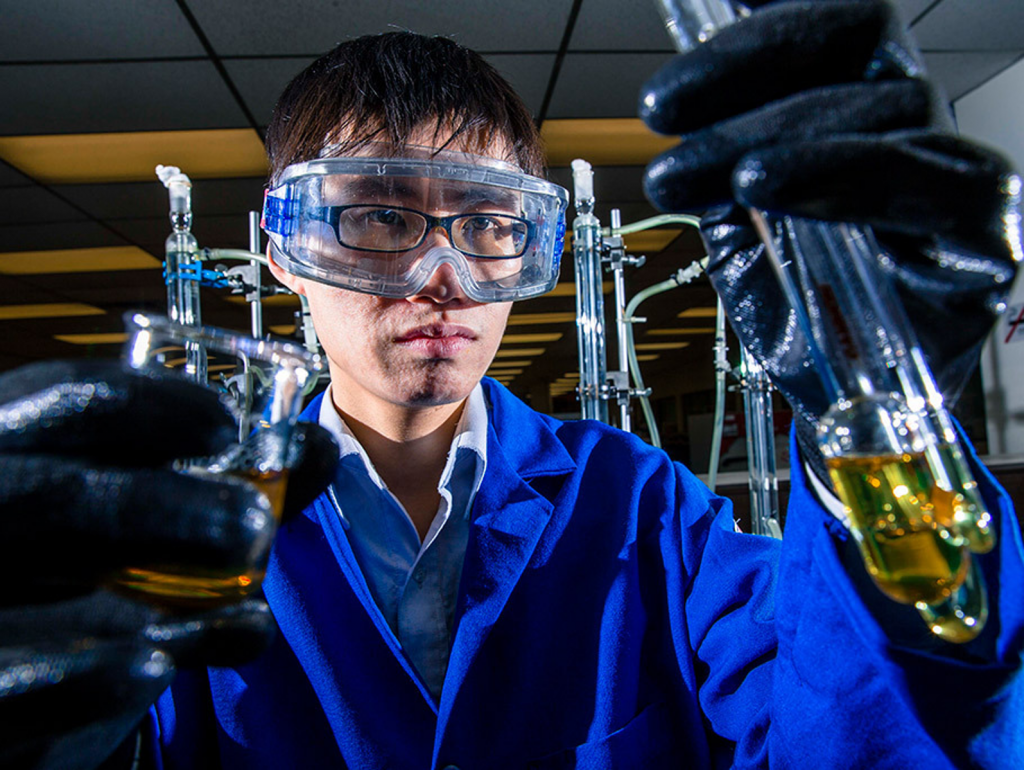And how do you continue to grow and adapt this commitment as a country’s needs and vision change?
We have been on this journey with China since 1892, our China lead country manager Fernando Vallina said, providing everything from cleaner energy, like natural gas, through to performance chemical products used to make materials in the packaging, automotive and agricultural industries to help power China’s future.
“Underpinning future energy demand is economic growth driven by increasing population and growing prosperity. ExxonMobil leverages its core capabilities to meet society’s needs for products essential for modern life,” he said.
And after 100 years, our company is still expanding with China, Vallina said, accelerating our momentum to grow our presence and helping it meet burgeoning demand for the products China needs for everyday life. Further, ExxonMobil intends to assist in this growth while also achieving its net-zero emission goals as part of the company’s global initiative to provide improved energy and reduce its environmental impact.
Getting greener
We are working collaboratively with China and other energy companies to accelerate the nation’s emission reduction capabilities.

ExxonMobil China Lead Country Manager Fernando Vallina
We have signed a Memorandum of Understanding with CNOOC, Shell and the Guangdong Provincial Development and Reform Commission for a carbon capture and storage study project at the Guangdong Dayawan Industrial Park, where ExxonMobil recently invested in a multibillion-dollar petrochemical complex.
“The parties will jointly evaluate the potential for a world-scale project to reduce greenhouse gas emissions at the Dayawan Petrochemical Industrial Park,” Vallina said.
“This project supports China’s objective for carbon neutrality by 2060 and ExxonMobil’s net-zero ambition. Dayawan could serve as a model for the chemical industry by becoming one of the first large petrochemical complexes to remove carbon dioxide emissions.”
ExxonMobil will leverage off the capabilities of our recently launched a Low Carbon Solutions business, which is focused on technologies and fuel sources such as carbon capture and storage, hydrogen, and biofuels to help China reduce emissions for bluer skies.
“We see tremendous opportunities to use our technology and expertise in carbon capture and storage, hydrogen, and biofuels to support meaningful reductions in global emissions. We expect those opportunities to grow as policy support for low-carbon solutions increases,” Vallina said.
He added that even though industry can’t go green overnight, with projects such as these transformation is continual and aids China in reaching its net-zero ambitions.
“The ambition is supported by roadmaps to evaluate and pursue emission-reduction opportunities ranging from small-scale operational changes to large-scale capital investments.”.
However, we aren’t just committed to providing energy – we’re also working with China to help use its energy in a smarter way through its Green Program.

ExxonMobil sees enormous opportunities to utilise its technological capabilities and expertise to help lower carbon emissions.
Vallina said the Green Program provides advanced lubrication technology and solutions to help customers improve energy consumption, reduce emissions and increase productivity, “which will also contribute to the sustainable development of the economy”.
“The core concept of the program is, ‘less leads to more’.”
Powering a continued commitment
Another way ExxonMobil is showcasing our commitment to helping China build its future through cleaner energy.
Vallina said ExxonMobil is powering the nation, supplying cleaner-burning LNG to the Chinese market through two long-term agreements signed in 2009 with Sinopec and PetroChina.
In 2019, ExxonMobil also signed a sales and purchase agreement with Zhejiang Provincial Energy Group to supply a million tons per annum of LNG over 20 years.

This natural gas helps China address the dual challenge of providing enough energy to meet the country’s power needs while also reducing emissions.
“When considering life cycle emissions,” Vallina said, “natural gas emits up to 60% less greenhouse gas and produces significantly fewer air pollutants than coal for power generation.”
“Many national and state governments have recognized the contributions natural gas can make to reducing greenhouse gas emissions and have included transitioning to natural gas in their carbon-reduction programs.”
After more than a century working together with China, the organisation’s footprint has grown significantly, even since Vallina’s first time in the country, as the company moves to meet the nation’s changing needs.
“Our business portfolio in China spans the full spectrum of the business lines, including upstream LNG, fuels and lubricants, chemicals and technology center, as well as low carbon solutions,” he said.
“Building on our strong heritage, together we will capture such opportunities, grow our business further and embrace a brighter future. We have operated in China for more than a century, and our commitment to this strategic market has not changed.”




